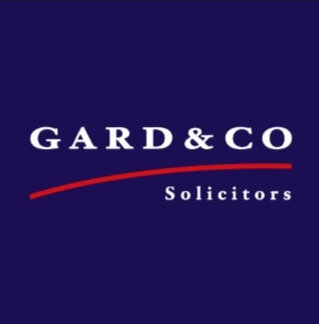Best Collaborative Law Lawyers in Plymouth
Share your needs with us, get contacted by law firms.
Free. Takes 2 min.
Free Guide to Hiring a Family Lawyer
List of the best lawyers in Plymouth, United Kingdom
About Collaborative Law in Plymouth, United Kingdom
Collaborative Law is a modern and non-confrontational approach to resolving family law disputes, commonly used for divorce, separation, and other family-related issues in Plymouth, United Kingdom. Unlike traditional court proceedings, Collaborative Law allows both parties to work with specially trained collaborative lawyers, and sometimes other professionals, to reach an agreement that works for all. The process is voluntary, confidential, and is designed to promote open communication and mutual respect. It aims to minimize the emotional and financial stress often associated with legal disputes, putting the focus on collaboration rather than opposition.
Why You May Need a Lawyer
There are several reasons why someone in Plymouth might require a lawyer experienced in Collaborative Law. Some common situations include:
- Undergoing separation or divorce and seeking a fair settlement without going to court
- Wanting to maintain an amicable relationship for the benefit of children or other family members
- Desiring a private, efficient, and less adversarial approach to resolving family disputes
- Working to agree on arrangements regarding children, finances, or property division
- Avoiding traditional litigation, which can be costly and protracted
Collaborative Law is particularly beneficial for couples who wish to have more control over the outcome of their case and reduce conflict during a difficult time.
Local Laws Overview
In Plymouth, United Kingdom, Collaborative Law operates within the framework of English family law, but with a focus on alternative dispute resolution. Here are some key aspects of local laws that impact Collaborative Law:
- All lawyers involved in the process are collaboratively trained and sign an agreement to avoid court litigation during the collaborative process
- If either party decides to stop the collaborative process and go to court, both collaborative lawyers must withdraw, and new legal representatives are required
- The process is confidential, and information shared during collaborative meetings generally cannot be used in court proceedings
- Collaborative Law can be used to resolve a wide variety of family law matters including finances, children arrangements, and even some civil disputes
- Final agreements reached can be drafted into a legally binding consent order and submitted to the local family court for approval
The emphasis of local Collaborative Law in Plymouth is on constructive problem-solving rather than confrontation, benefiting families, especially where ongoing relationships are important.
Frequently Asked Questions
What is Collaborative Law?
Collaborative Law is a voluntary, out-of-court process where both parties commit to resolving disputes with the help of collaboratively trained lawyers, without going to court. It is especially common in family law matters such as divorce or separation.
How does Collaborative Law differ from mediation?
While both are alternative dispute resolution methods, Collaborative Law involves each party having their own lawyer in the process and all parties meeting together to negotiate. Mediation typically involves a neutral mediator who helps parties reach agreement, often without individual legal representation in the room.
Is Collaborative Law legally binding?
The discussions in Collaborative Law sessions are not legally binding. However, any agreement reached can be made legally binding by drafting a consent order and submitting it to the court for approval.
How long does the Collaborative Law process take?
The duration varies depending on the complexity of the issues and the willingness of both parties to cooperate, but the process is generally faster than traditional court proceedings.
What issues can be resolved using Collaborative Law?
Collaborative Law can be used to resolve a range of family matters such as financial settlements, child arrangements, property division, and sometimes even civil disputes involving families.
What happens if the Collaborative Law process breaks down?
If the process fails and parties cannot reach agreement, both collaborative lawyers must withdraw from the case. New legal advisors would then need to be appointed if the matter proceeds to court.
Can Collaborative Law be used if there is a history of domestic abuse?
Collaborative Law may not be suitable in situations where there is a significant power imbalance or a history of domestic abuse. Your lawyer can advise if an alternative dispute resolution method may be more appropriate.
Do both parties need to agree to use Collaborative Law?
Yes, Collaborative Law is a voluntary process and requires the consent and commitment of both parties, along with collaboratively trained lawyers.
How much does Collaborative Law cost?
The cost varies based on the complexity of the case and the number of meetings required. However, it is usually less expensive than lengthy court proceedings, as it is more efficient and reduces the need for multiple hearings.
How do I find a Collaborative Law specialist in Plymouth?
You can search for accredited collaborative lawyers in Plymouth through professional organizations or ask for recommendations from local family law practices. Look for lawyers who have completed collaborative law training.
Additional Resources
If you are seeking further information or help regarding Collaborative Law in Plymouth, consider the following resources:
- Resolution - An organization of family lawyers and other professionals committed to promoting collaborative practice
- Plymouth Family Court - For guidance on making agreements legally binding
- The Law Society - To search for accredited collaborative lawyers in the Plymouth area
- Plymouth City Council - For local support services and advice related to family issues
- Citizens Advice Plymouth - For free, confidential, and impartial advice on legal matters
Next Steps
If you believe Collaborative Law may be suitable for your situation, here are some steps you can take:
- Research and contact collaboratively trained lawyers in Plymouth for an initial consultation
- Discuss with your ex-partner or the other party about considering Collaborative Law as an alternative to court
- Prepare relevant information regarding your circumstances such as financial details or child arrangements
- Arrange for an informational meeting with a Collaborative Law specialist to fully understand the process and your options
- If both parties agree, collaboratively trained lawyers will arrange a participation agreement and start the process
Taking proactive steps to understand and pursue Collaborative Law can help you achieve a fair and lasting resolution to your family law matter in Plymouth.
Lawzana helps you find the best lawyers and law firms in Plymouth through a curated and pre-screened list of qualified legal professionals. Our platform offers rankings and detailed profiles of attorneys and law firms, allowing you to compare based on practice areas, including Collaborative Law, experience, and client feedback.
Each profile includes a description of the firm's areas of practice, client reviews, team members and partners, year of establishment, spoken languages, office locations, contact information, social media presence, and any published articles or resources. Most firms on our platform speak English and are experienced in both local and international legal matters.
Get a quote from top-rated law firms in Plymouth, United Kingdom — quickly, securely, and without unnecessary hassle.
Disclaimer:
The information provided on this page is for general informational purposes only and does not constitute legal advice. While we strive to ensure the accuracy and relevance of the content, legal information may change over time, and interpretations of the law can vary. You should always consult with a qualified legal professional for advice specific to your situation.
We disclaim all liability for actions taken or not taken based on the content of this page. If you believe any information is incorrect or outdated, please contact us, and we will review and update it where appropriate.










